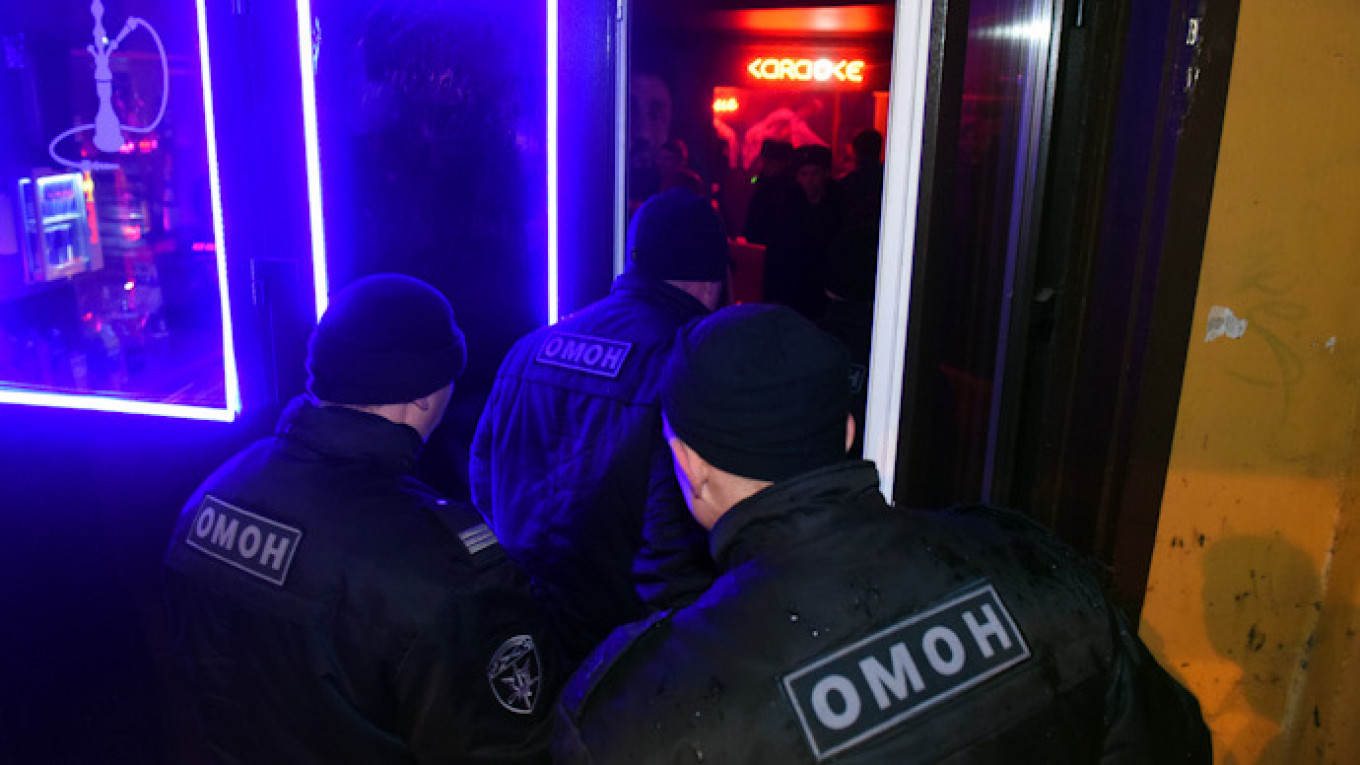
Restaurants and bars in Russia’s second city of St. Petersburg are at odds with authorities over New Year’s restrictions aimed at combating one of the country’s worst coronavirus outbreaks, saying the measures threaten their survival.
Dozens of establishments have said they intend to remain open for Russia’s most festive holiday, while city authorities have clamped down on coronavirus violators with harsh raids.
In recent weeks, St. Petersburg has had Russia’s second-highest coronavirus infection rate. As he announced the New Year’s restrictions last week, St. Petersburg Governor Alexander Beglov warned that the city was close to reimposing a strict lockdown due to high case numbers and hospital bed shortages.
The restrictions, officially called Resolution 131, call for the complete closure of restaurants and bars between Dec. 30 and Jan. 3. Establishments will also not be able to serve customers between the hours of 7 p.m. and 6 a.m. from Dec. 25-29 and from Jan. 4-10.
Beglov’s announcement sparked anger from local businesses and a “Map of Resistance” showing some 200 locations that would defy the orders during the holidays appeared online the next day.
“Not working at all is death,” the project’s organizer, entrepreneur Alexander Konovalov, told the RBC news website. “The authorities chose a blow worse than a lockdown. Any sane person understands that the coronavirus is terrible. But this does not mean that the coronavirus should kill an industry to the point that it cannot be restored in any way.”
Businesses that protested against the new restrictions pointed to what they called a lack of logic behind the rules. They also cited financial struggles, saying that many customers prepaid for corporate New Year’s parties earlier in the fall and that they would incur huge losses by returning the money.
The map wasn’t without its controversies, with several establishments listed on the map saying they were added to it without their knowledge and that they planned to comply with the city’s restrictions.
The day after the map was published, investigators and police carried out raids on bars after the cut-off time of 11 p.m., with video footage showing officers beating customers and employees with truncheons. Commenting on the raids, Deputy Governor Evgeny Yelin said the police had every right to use force, describing the violence as their “duty.”
The St. Petersburg Investigative Committee said three bars on the city’s main nightlife hub, Rubinstein Street, were found to be violating anti-coronavirus measures by staying open past 11 p.m. Investigators opened two criminal cases against the bars on charges of violating sanitary and epidemiological regulations, which can carry a maximum sentence of six years in prison.
On Thursday, the Map of Resistance was abruptly shut down after a wave of discussion in Russian media.
“It is clear to us that we managed to get through to the authorities and they have finally heard us. Our colleagues were able to share their proposals about effective and logical measures to combat the coronavirus in St. Petersburg,” a message on its website said. “We will defeat both the epidemic and the crisis when the authorities and businesses are able to communicate and act in concert.”
Not all restaurants in the city plan to disobey the New Year’s restrictions despite disagreeing with them.
“I think the restrictions are absurd. I know of many restaurants that follow all the recommendations and they are much safer places than supermarkets, public transport and clinics, which are staying open,” Lyudmila Ivanova, owner of the Mechtateli restaurant, told The Moscow Times. “But I think the Map of Resistance is not good for restaurants. It only incites aggression from the authorities and the police.”
Antonio Fresa, owner of the Saviv bistro and the Jerome restaurant, said his businesses will be able to weather the closures as they did during this spring and summer’s lockdown.
“I wouldn’t risk defying the rules because we will receive a huge fine if they check in on us,” he said. “We will lose a lot of money, but it wouldn’t be the first time. We already went through this in the summer. During the restriction period, my restaurants will offer home delivery to our customers. That will help.”
St. Petersburg authorities do not plan to carry out thorough checks during the New Year holidays but will track violations with a hotline where residents can file complaints about underground parties.
The city has promised to try to find a compromise for the dining industry for the New Year holidays by Dec. 25, said Alexander Titov, deputy chairman of the city’s industrial policy committee, at a press conference.
“We understand restaurateurs’ concerns,” he said. “But we also understand that crowds of people on New Year’s Eve can be extremely dangerous. We are working on the best possible solution. If the epidemiological situation allows, then decisions will be made adequately and quickly.”
